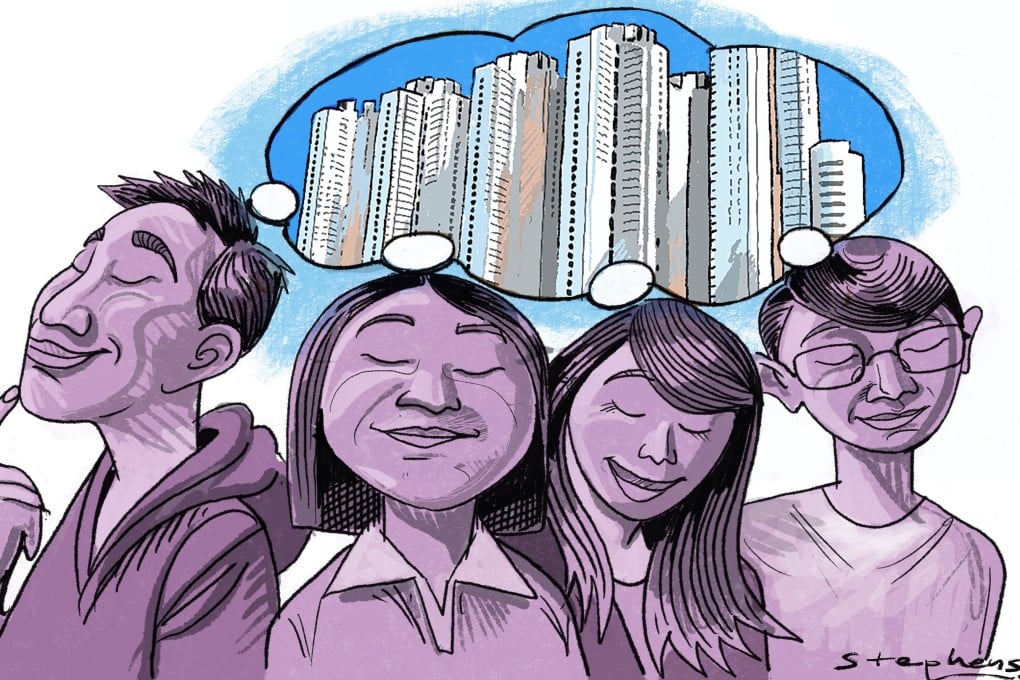Advertisement
Opinion | Reform the subsidised housing market to give young people hope
- To help more young people own homes, better use should be made of overlooked second-hand HOS flats
- Mortgage guarantees should be extended on resale flats, limits abolished on buyer eligibility, and the ballot system refined to favour those with previous failed applications
Reading Time:4 minutes
Why you can trust SCMP
1

The recent launch of Hong Kong’s first hotel-to-youth-hostel conversion project has returned attention to the hot topic of young people’s housing needs. Today, fewer young people are able to own a home due to skyrocketing housing prices and stagnating income mobility.
Advertisement
With their hopes of home ownership fading as upward mobility deteriorates, many feel frustrated and defeated. The sense of powerlessness has led to a “let it be” lifestyle, with many taking to “lying flat” and rejecting the rat race.
Against this backdrop, Our Hong Kong Foundation launched its latest study on home ownership and youth social mobility, aiming to raise awareness of the difficulties faced by young people. It proposes to reform the Home Ownership Scheme (HOS) market, an underused resource that could be a game-changer.
Using population census data from the past two decades, we analysed changes in the median monthly incomes of young people aged 30-34. Without adjusting for inflation, the incomes of degree and non-degree graduates have increased by 20 per cent and 36 per cent respectively from 2001-2021. In the same period, housing prices have soared 399 per cent.
To measure changes in home-ownership affordability, we looked at a 30-year mortgage at 90 per cent of the property’s value, based on the median monthly income of young people. After obtaining the corresponding maximum loan amount based on the prevailing interest rate, the figure is divided by the average per square foot price of residential units of different sizes, thus arriving at the maximum affordable flat size.
Advertisement
The results are telling. In 2001, university graduates could afford a large flat of 798-1,061 sq ft. But, by 2021, they could only afford an apartment measuring no more than 263 sq ft.

Advertisement


